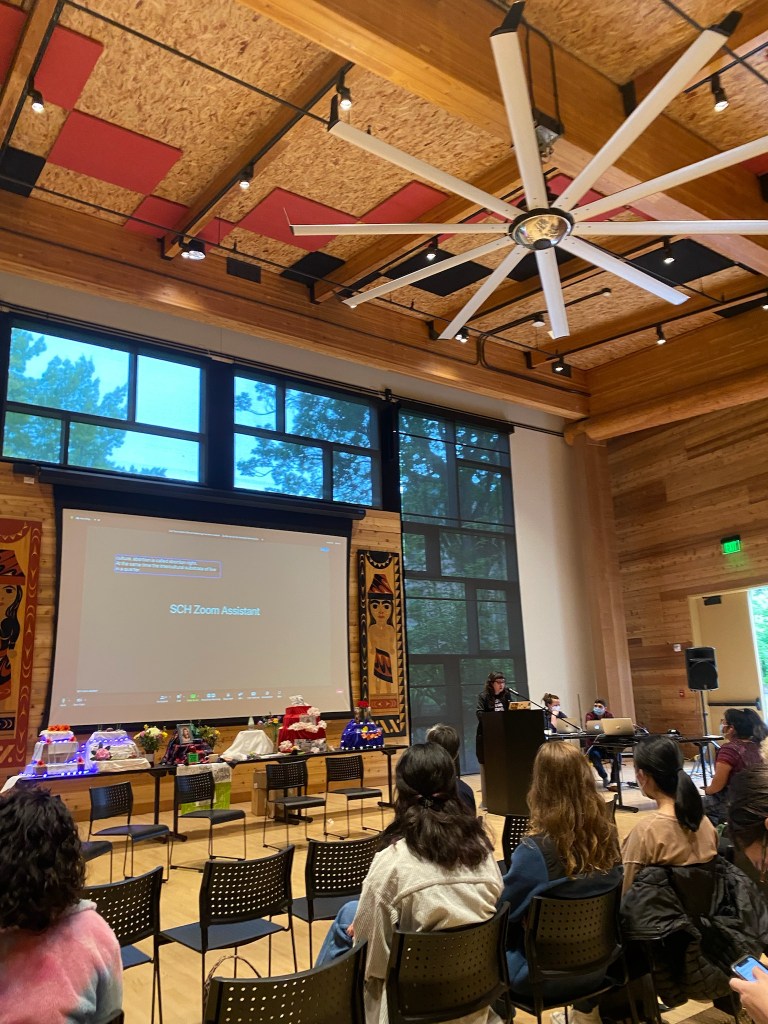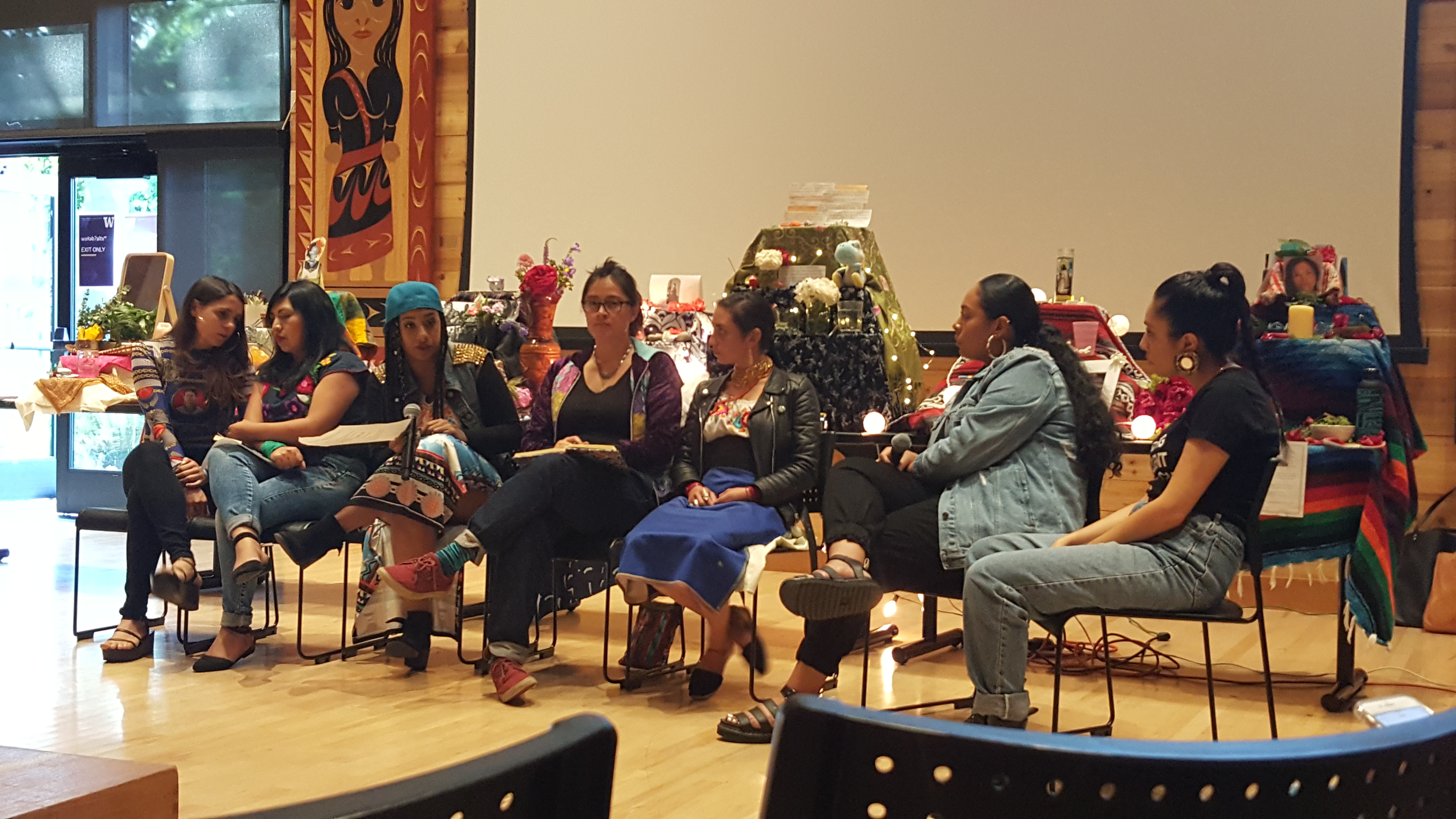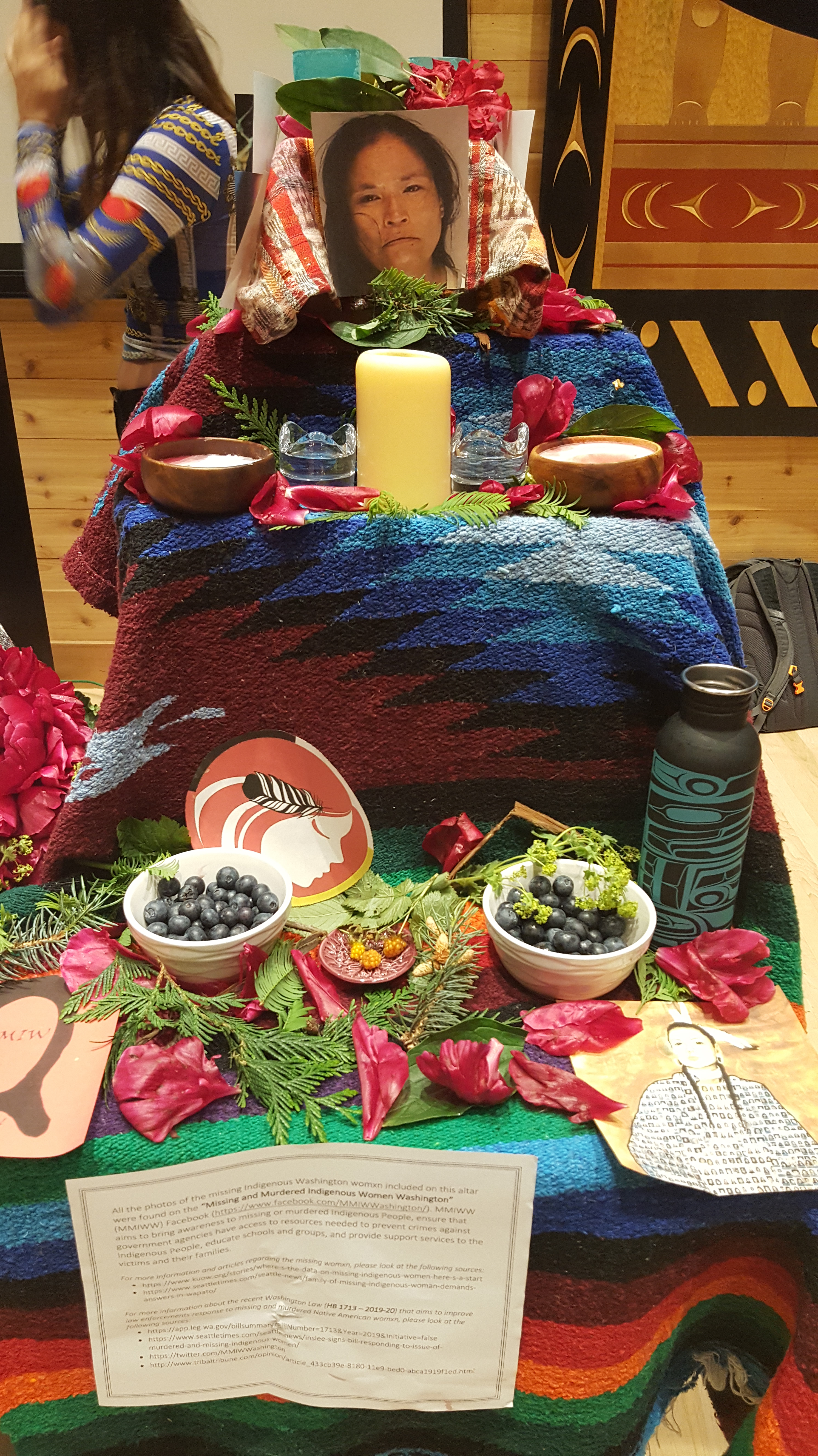Interview :
- Group 1:
- Una conversation con Gladys Tzul Tzul
- Gladys Tzul Tzul
- May 24, 2022
- Nora Medina
- Text Description of Conversation
- 5 minute interview, 1 paragraph
Spanish
En el evento de Plurifeminsmo en la Abya Yala yo Nora Medina hable con Gladys Tzul Tzul de Guatemala. Ella dice que los términos “Plurifeminismo” y “Abya Yala” son subjitiente pero que es muy importante lo que las mujeres indígenas han echo much trabajo como “feministas” pero es palabra no es inclusiva mucho a ellas. Y que hasta si no se consideran feministas ellas hacen mucho de el trabajo que critican la systema politico, critican el patriarcado y mas que affection las mujeres indigenas. Ellas siempre están peliando sobre estos derechos. Entonces Plurigeminismo en la Abya Yala es mas para las mujeres indigenas y sobre sus trabajos. Aparte de esos también me dio recomendemos de novelas de Juan Rulfo un autor de Jalisco donde mis padres son de.
English
My name is Nora Medina and in the event of Plurifeminism in the Abya Yala, I interviewed Gladys Tzul Tzul from Guatemala who had a long long trip to be here to speak of this. I asked Gladys what the term “Plurifeminsm in the Abya Yala” meant to her and she responded by saying that these terms were very subjective but how indigenous women in the Abya Yala are doing the work that could classify as feminists but that term isn’t very inclusive to indigenous women. Having this term shows how indigenous women having something to connect them to and label the work they do such as the social critique of political, patriarchal systems, among other that affect indigenous women. Gladys also provided my recommendations for novels by the author Juan Rulfo such as “Pedro Paramo” “El llano en Llamas”.




